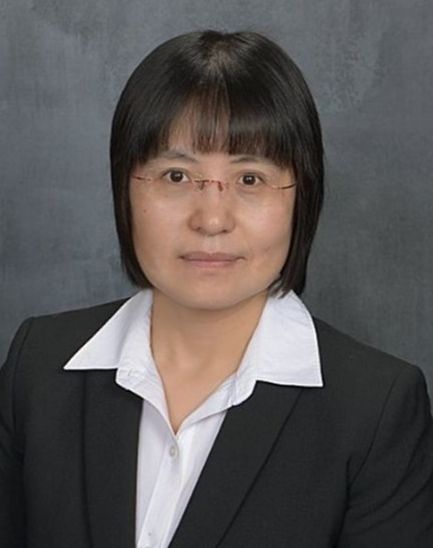Electrical engineering alum Peifen Zhu ’15 PhD, an assistant professor of physics and engineering physics at the University of Tulsa, is a recipient of a Faculty Early Career Development (CAREER) award from the National Science Foundation.
The funding, approximately $440,000 over five years, will support her work toward overcoming a significant obstacle in the acceptance of energy-efficient light-emitting diodes (LEDs): consumers’ distaste for the cool, bluish color of the light they emit. By developing white LEDs with superior color quality, Zhu hopes to speed up the widespread adoption of the technology, which would result in significant energy savings.
Specifically, her work focuses on new lead-free pseudohalide/halide perovskite nanocrystals for white-spectral LEDs technologies. The use of lead-free technologies will provide safe and sustainable solutions to conventional approach.
“The knowledge we will gain through this project will improve our understanding of these promising semiconductor materials and help advance the discovery of environmentally friendly materials for next-generation LEDs,” says Zhu.
The prestigious NSF CAREER award recognizes faculty who are still early in their career but have promise to be role models in research and education within their departments.
During her doctoral studies at Lehigh, Zhu was advised by Nelson Tansu, the Daniel E. '39 and Patricia M. Smith Endowed Chair Professor and the director for the Center for Photonics and Nanoelectronics (CPN). Tansu is an elected Fellow of the National Academy of Inventors (NAI), and was named in the prestigious Clarivate Analytics list of “Highly Cited Researchers” in 2018. Five of Tansu’s former graduate students have become tenured or tenure-track faculty members.
“We are very proud to see Peifen Zhu’s accomplishments,” says Tansu. “The use of environmental-friendly nanomaterials for solid-state lighting technologies is essential for enabling safe and sustainable solutions.”
Zhu’s PhD thesis was on the light extraction efficiency and nanomaterials in solid-state lighting technologies. Since then, she has continued to explore energy efficiency technologies in her tenure-track position at the University of Tulsa, where she leads the Lab for Emerging Materials and Devices.
“Zhu was a product of the convergence science research culture that we have been promoting within the Center for Photonics and Nanoelectronics at Lehigh,” Tansu emphasizes. “I have been fortunate to mentor and work together with highly dedicated students in my research group over the past 17 years at Lehigh. Seeing them become successful in their independent careers and making impacts in society has been simply a pure joy to me.”

